|
5 stars
If you, too, would like to ugly cry at 12:30am when you finish a book, then BOY—do I have a book recommendation for you. Crying in H Mart is the kind of story that I don't usually pick up. Mainly because I know I'll blubber my way through it. (I did.) But after seeing this memorable and eye-catching cover work its way through the bestseller lists, then the recommended lists, and finally reinvigorating the same cycle with its paperback release... my resolve weakened and I picked up a copy from my local library. This book has relentlessly caught my eye in bookstores, on library shelves, and online. It was time for me, tears be damned. Michelle Zauner's mother died of cancer when Michelle was 25. A year that her mother had always foretold would be a very important year of her young adulthood, that year was instead a year of death and loss. This season of loss was made more complicated with Michelle's inward journey of understanding her mother. After many years of misconnection and strife, they were just starting to recombine into the close mother-daughter bond that they'd had long before. And then—the final stop. Crying in H Mart is about Michelle's life with her mother. The Before, the During, and the After. And through it all, there is one persistent shining light: their connection to Korean food culture. Told in visceral layers, blunt truths, and beautiful descriptions, this book was something to devour in all senses of the word. I recommend to the obvious group—memoir fans—but also to anyone who identifies to family through its traditions, or to anyone who has an enduring love for Korean food (as the food is definitely one of the main characters).
0 Comments
5 stars
There is something uniquely nostalgic about listening to your first movie crush talk about his time as a child on the set of your favorite childhood fictional world. (If you’re planning on reading this, get the audiobook!!) If you're of a certain age... Then you read, watched, and/or consumed media about a certain series. You know the one I mean. You're reading this review, and it's for a memoir about one of the actors. This series' prevalence in our popular culture has permeated the veil of basic cultural knowledge—for good or for ill—and it is a massive part of my generation's upbringing and cultural sense of identity. More recent news about its creator aside*, I find myself inescapably drawn to news about characters, actors, and stories centered on this world that I adored as a teenager. And, most importantly for this particular review: I was a girl that was absolutely obsessed with Draco Malfoy. Now, let's not dwell on my ~interesting~ taste in love interests. I loved the bad boy, I loved the snark. I thought his tragic backstory had heart to it and I joined the legions of fans who looked into the mirror and saw Draco's hidden good sides. Sooooooo I naturally latched on to Draco's actor, Tom Felton. He was synonymous with Draco, after all. And for this audiobook experience in Beyond the Wand, I found that Tom's voice immediately took me back to that place and that time, when those characters were a yearly appearance and they ruled the world's stage. Beyond the Wand is nothing less than the perfect nostalgic trip through time condensed through the keyhole of Tom Felton's particular experience in an extraordinary childhood and surrounded by the culture of the 1990s, 2000s, and now. Now, don't get me wrong: Tom's life was large outside of his time as Draco Malfoy. And it's had some bumps in the road. This book got much heavier than I expected, and much more honest. Tom's here to share his whole life's story, after all, and not just a part of it. I appreciated that. I feel like Tom and Draco are more separate in my head because of it—and that's probably a good thing. Read this if you were one of those kids like me. It was a wonderful experience, and Tom's narration on the audiobook was perfection. I recommend giving it a listen! 5 stars
Chills. A powerful entry into the nonfiction true crime canon and the fight for justice against murdered women in America. I highly recommend the audiobook. Audiobook narration: ★★★★★ Pacing: ★★★★★ Storytelling: ★★★★★ I am tired of hearing stories of women being raped and murdered while trying to exist on this planet. I am enraged at the audacity of the white men who kill them and other marginalized communities.* And I am here for every expose, every carefully researched dagger into the canon of retribution and justice served in the hands of other voices who are determined to be heard and determined to change history. Welcome to Trailed: One Woman's Quest to Solve the Shenandoah Murders. In May 1996, two young women, Lollie Winans and Julie Williams, were murdered in Shenandoah National Park in Virginia. They were in their mid-20s, they were much in love with each other, and they loved being in the wilderness. They were experienced trail hikers and they had done this many times before. But this time, they never made it out of the woods. In the years that followed their brutal murder, the National Park Service (NPS) and the Federal Bureau of Investigation (FBI) spent countless man hours hunting for their killer. They settled pretty quickly on Damien Rice. Rice had assaulted another woman in the park. He seemed unstable. He was in the area for the time period of their deaths. The case seemed black and white...to the investigators. It didn't seem to matter that the perpetrator's DNA left on the crime scene didn't match Damien Rice's countless DNA records. It didn't seem to matter that this very organized and sexuality-based hate crime did not fit Rice's M.O. by any description. And it didn't seem to matter that there were several eyewitness testimonies that appeared to contradict the official timeline of Lollie and Julie's final days alive. Journalist Kathryn Miles was working as a college professor at Unity College, an environmental science and wilderness leader in the country, when she discovered the emotional footprint left on the campus by its former student, Lollie Winans. One of the murdered women from Shenandoah. The college continued to grieve Lollie's loss, and Miles found herself pulled into the case with its emotional resonance and endless question marks about validity of the investigating team's justice. Kathryn Miles decided to do some digging. And then she couldn't stop. Meticulously researched, engrossing described, and involving a cast of characters spanning professions, states, and decades, Trailed is a memorable piece of long-form reporting. I devoured it in two days, listening to the audiobook in every spare moment of my day. True crime and mystery audiobook fans will recognize the narrator--Gabra Zackman's voice echoes from her previous works in I'll Be Gone in the Dark by Michelle McNamara and other crime stories centered around women such as Sadie by Courtney Summers and The Night Before by Wendy Walker. A tragic story, but one that needed to see the light. Rest in peace, Julie and Lollie. We hope you have found justice here. Thank you to Algonquin Books and Libro.fm for my copies in exchange for an honest review. *The statistics show the murderers skew alarmingly toward cis-het white men, I am not making a personal judgement with that fact. It is also illuminated within this nonfiction text. 4 stars
Our planet's resources are finite, including arguably the most important one: the water. Explained in engaging snapshots and covering several different environmental topics related to water and its use, misuse, and conservation, this book is a must-read for our younger audiences. (And us adults, too!) Concepts: ★★★★★ Readability: ★★★★★ Pacing: ★★★ When the World Runs Dry: Earth's Water in Crisis is the kind of nonfiction read that I hope gets taught in schools. Because I, a fully grown adult with basic knowledge of our water troubles, learned way too much information for the first time. I feel like we all should be well versed in the global situation of water. We need it to survive, it keeps everything alive, and yet... some of us remain ignorant of its journey and struggles in the current state of our Earth. Tailored to younger readers, this slim book had a TON of information processed in easy-to-digest bites. A little bit on the Flint water crisis and its implications in Michigan, USA. A little bit on the history and harms of fracking. A little bit on harmful red algae. A little bit on dry wells. A little bit on a lot of things, told in an accessible and informative way. I certainly learned a lot, and I appreciated the author for her time spent on dosing it down to the entry point level for a lot of very complicated topics. We only have so much water, y'all... A powerful read to absorb on this Earth Day. I recommend for all! Thank you to the publisher for my copy in exchange for an honest review. 5 stars
A stunning collection, accessibly told and beautifully illustrated. A must-read for all, frankly, regardless of age. This reader (me) learned a lot and loved the reading experience. Artwork: ★★★★★ Ease of reading: ★★★★★ Enjoyment: ★★★★★ Author Tracey Baptiste starts out this collection in the same way that I'd like to start this review: How much do we, as global citizens, really know about Africa's influence on the world's culture and history? When we celebrate Black History Month in the United States, the narrative is almost exclusively tied to the discussions of enslavement and European-American oppression inflicted on African individuals in the relatively recent past. We rarely, if ever, go further back than that. Due to this limited scope on history—and, as a larger conversation that the author addresses, due to biases and misinterpreted histories that exist of those prior time periods--little is commonly known to this day in popular history and culture about the African continent. In this collection, the author delves into those histories and global ties that bind Africa to our earliest beginnings of culture, language, and civilization. Who molded dynasties? Who built the cities? What African man was the richest man to ever live in the world? What women shaped our earliest cultures? I learned a tremendous amount of information in this slim volume, and frankly I was shocked at my own lack of basic knowledge—in the briefly of introduction examples in the author's first section, she shares the literal size of the African continent without its usual distortions in our most common world maps. Did you know that the countries of the United States, China, India, Japan, Eastern Europe, Italy, the United Kingdom, Germany, France, Spain, Portugal, and more ALL fit within the borders of the African continent? I did NOT. In other words, Africa is second only to Asia in terms of sheer continental size. That is just one brief, yet large, example of the knowledge to be gained from this extremely readable and enjoyable collection of short stories on Africa's earliest figures. I loved it and am thrilled to help spread the word about this collection. Thank you to the publisher for my copy in exchange for an honest review. 4.5 stars
Compelling, transformative, and reflective—this memoir of "the last nomad" is a must-read for fans of memoir and nonfiction. Writing: ★★★★ Engagement: ★★★★★ Pacing: ★★★ 1/2 The Last Nomad is one of those books where it arrived to my house, I said "oh, let me get a feel for the writing...I'll just read the first page" and then 45 minutes later, I realized I was several chapters in and fully, completely invested in the story. The best type of book, am I right? Shugri Said Salh's compelling memoir details her experience as her family's "last" nomad. Now, as she immediately explains, Salh knows she is not the literal "last nomad" in the world. Not by a long shot. But for her familial line, generations of whom had existed similar lives as nomads in the Somali deserts, Salh IS their last nomad—her upbringing as a nomad transformed into her adulthood as a mother living in present-day suburban California. What does it mean to straddle two lifestyles, worlds, and realities so dramatically? From survival to excess, the hunt for water to the overabundance of brand options, the intimate oral histories of your elders to the immediacy of the now at the cost of the internal memory, The Last Nomad highlight's Salh's desire to record her story for posterity and for her children to keep the link to the past within her and her family. And, luckily, for us readers too. She quotes the African proverb, "when an elder dies, a library burns" and with this poignant remark as a touchstone, she walks us through her life experiences. I don't want to get too specific with her stories, as it would merely be a pale regurgitation of Salh's own words, so take my word for it--The Last Nomad is one-of-a-kind. It'll linger with me for some time. Many thanks to the publish for my copy in exchange for an honest review. 4.5 disturbed stars
Amongst Jack the Ripper, Sir Arthur Conan Doyle, H.H. Holmes, and the birth of the modern medical movement... there was another man murdering prostitutes and women of no means in London and Chicago. His story has somehow faded in the background of more sensationalized figures—and yet his reign of murders was no less terrifying. Research: ★★★★★ Ease of reading: ★★★★ Contextualization: ★★★★★ "Enjoyment": ★★★★★ "In the span of fifteen years, Dr. Thomas Neill Cream poisoned at least ten people in the United States, Britain, and Canada, a death toll with almost no precedents. Structured around Cream’s London murder trial in 1892, when he was finally brought to justice, The Case of the Murderous Dr. Cream exposes the blind trust given to medical practitioners, as well as the flawed detection methods, bungled investigations, corrupt officials, and stifling morality of Victorian society that allowed Cream to prey on vulnerable and desperate women, many of whom had turned to him for medical help." I've pulled right from the book's blurb above because I think it's a near-perfect way to describe the contents of this piece of research. Are you aware of London's Jack the Ripper? Of course. But are you aware of Dr. Thomas Neill Cream? You should be, as he was worse. The only way I can describe my reading experience for this book is: baffling and horrifying. Here was a white man from a rich Canadian family hiding behind a doctor's degree in the late 1800s—who managed to evade justice for literal decades of murdering across three countries. He was suspected, questioned, arrested, and identified as a predator on multiple occasions throughout his reign of global terror... and yet money, corruption, sexism, racism, and more kept him on the streets. How did he do it? HOW did he get away with it, when his murders were nearly identical, he was tied to the scenes of the crime and the victims, and his mental state gave him away at nearly every turn with erratic behaviors and letters of confession sent to the police? Author Dean Jobb takes us on this chilling, ominous journey through immaculately researched chapters and photos detailing every leg of Dr. Cream's life. In a similar manner to The Devil and the White City, this work includes direct quotations in a narrative style—all sourced—and play-by-play journeys from each of Dr. Cream's murderous explorations. The writing style with dialogue and descriptions made for an easy, almost fictional/narrative read, but this is no work of fiction. I found it chilling to see Dr. Cream in photos, and even more disturbing to read the blackmail letters he sent to the police and the documents written down about him at the time. Seeing the plight of the Victorian single woman—often existing at society's fringes in prostitution, one of the few lucrative positions available to her—and her fatal encounters with a doctor whom she thought she could trust... chilling. Dean Jobb has done a fantastic job with this work. I put it right up there with Devil in the White City and The Butchering Art, both nonfiction works dealing with similar subject matter. The only elements of this work that I wish the author had provided more context for were the discussions on sexism and race that played out in Dr. Cream's ability to evade justice. He preyed on white female prostitutes, and in one particular court case his lawyer was easily able to discredit a witness because she was a Black woman. Jobb discusses the sexism at work during these times in an afterword at the end—most likely as a way to keep the editorialization minimal within the "narrative" timeline—but he does not go into detail on the levels of racism at play. Even though we as readers could reasonably take it as a given, due to the time period, it would have been appropriate to give that topic more airtime. Thank you to Algonquin Books for my copy in exchange for an honest review. 5 stars
The future is hopeful. And it's being led by our youngest generation. Walk in the steps of those who protested in 1903 in the March of the Mill Children and see where the fight continues on in those who participated in the George Floyd protests... as well as all of the ones that came between. 15 powerful stories. 1 nation. Organization of stories: ★★★★★ Resonance: ★★★★★ Enjoyment: ★★★★★ When you think of a line of protesters, who do you picture? How old are they? If you're like me, the group of people attending a social protest is a varied group in my imagination but, in general, they have one thing in common—they're adults. Adults tend to have louder voices, more ability to self-advocate, and more experience to draw from in an organized space. Right? In Kids on the March, you'd be wrong. Delving into 15 stories of kid-led and kid-focused protests for social justice, this slim volume packs a very memorable punch. When the youngest of us know what is right, and what is wrong, and they decide to speak up... their voices are loud enough to be heard. And they have a right to their space. I devoured this collection. There's no other word for it. Author Michael B Long is on to something when he pulls us along on a journey through the twentieth century's most active youth-led protests—and the changes they demanded. From young children desperate for more ethical work hours in 1903 to the 1951 Strike for a Better School that led to the Brown v. Board of Education titan of social justice to the more modern March for Our Lives and the Black Lives Matter protests.... this is a powerful body of work. And an inspiring one. "Let us pray with our legs. Let us march in unison to the rhythm of justice, because I say enough is enough." -Demetri Hoth, Senior at Marjory Stoneman Douglas High School (2018) I recommend this to all, especially my fellow Americans. Many thanks to Algonquin for Young Readers for my copy in exchange for an honest review. 5 stars
A celebration of girlhood from all around the world told from the girls themselves... a beautiful, moving, and heartwarming collection of what it means to be female across the globe. Book construction: ★★★★★ Enjoyment: ★★★★★ Brought about by freelance journalist Masuma Ahuja's series featured on Washington Post's The Lily, which featured a few samples of girls growing up throughout the world, this work broadens the original grouping of young girls and their experiences into one collection spanning 27 countries and including 30 girls and their stories. I thoroughly enjoyed this collection. Teenagers, and female teens in particular, experience certain life moments across all borders. And yet their individual experiences also showcase startling differences across countries, socioeconomic classes, racial divides, and the ever-present gender divide. Girlhood: Teens Around the World in Their Own Voices attempts to showcase what girls' lives are really like—told in their own words. I think it delivers. From an Argentinian football player with a passion for play to a 16-year-old Cambodian scholarship student learning in Australia (and more), this collection provides intimate snippets of 30 lives. Some are more lighthearted than you'd expect. Some are much darker. Some showcase the resilience of womanhood and others highlight the still too large gaps between the female and male experience. One of my favorites was Jocelyne's story—mainly because she mentioned an interest in ASMR (a YouTube phenomenon that involves sensitive sounds and microphones, google it!). Jocelyne and I have that in common, but her life in the Democratic Republic of the Congo is worlds away from mine in the U.S. I'd encourage all to check out this collection. It's a quick read due the format of blurbs and diary entires, but a powerful and heartwarming one all the same. Girl power! Thank you to Algonquin Books for my copy in exchange for an honest review. 3.5 stars
What an interesting and thoughtful memoir / self-help guide. Really sticks with you at points. Pacing: ★★★ Chapter flow: ★★ Enjoyment: ★★★ 1/2 I initially rated this 4 stars when I finished it, but once the high of the last few sections wore off, I realized that while there were parts I loved there were also some significant clunks that I...didn't. Untamed is an interesting nonfiction read, in a genre hybrid that I would classify as memoir meets self-help book. This is obviously Glennon Doyle's niche, as her previous books sound like they fit that mode as well (I haven't read them, but they are mentioned often in this one). In Untamed, Glennon is telling us the radical moment that changed her life: as a fully-formed, middle-aged adult, married with three kids and with a career as a Southern Christian motivational speaker, Glennon realizes in an instant that she is actually attracted to women, and she finds her match across a (semi) crowded room—just like a fairy tale. Thus begins the moment that radically alters her established life and leads her on the path to acceptance. Welcome to Untamed. What was truly amazing about this story was the love in its pages. It is clear that Glennon loves, and those around her also love. I loved, even, when it came to hearing about her children, her path to true acceptance as a gay woman, and her intimate decisions when it came to self awareness and reflection. As a woman reading the story of a woman coming into her own, both sexually and as a woman who'd let the cultural systems break her into the box they'd predetermined for her, I loved this book. Where Glennon lost me was in the structure of Untamed itself. I am really, really not a fan of non-linear fiction or nonfiction. This book had us in one timeline (Glennon realizing her true love at a writer's conference) and then it went back in time to the before (Glennon as a child)—that transition was fine, I've read many a book like that before. But then, two pages later, we would be in a new chapter break and that new break would be in the future (Glennon now, with her wife) and both the past the present are gone. Then we would go back to a slightly different present or past. Ping pong, ping pong. Coupling that fact with the fact that each chapter varied in length from 2 pages to 8 pages, on average, and it was on the wrong side of confusing for me. I also struggled with this book's strong metaphysical overtones (the "Knowing" and her faith), but to a much lesser degree than the nonlinear transitions—just placing it here for those who also might have felt the same way. Overall, a thoughtful and memorable read! |
Amy Imogene ReadsJust someone looking for her own door into Wonderland. Categories
All
Archives
May 2023
|
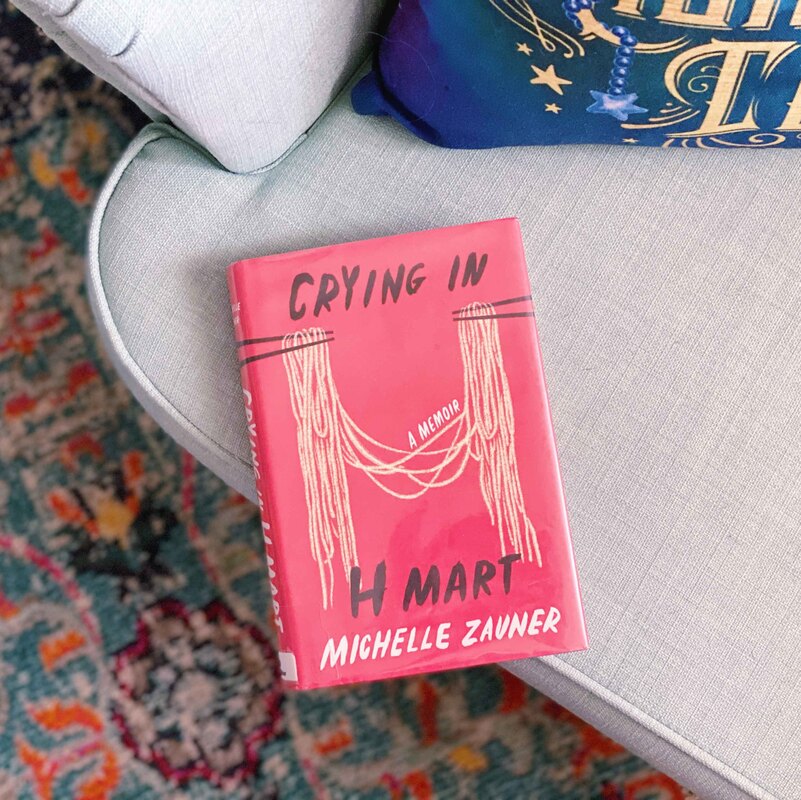
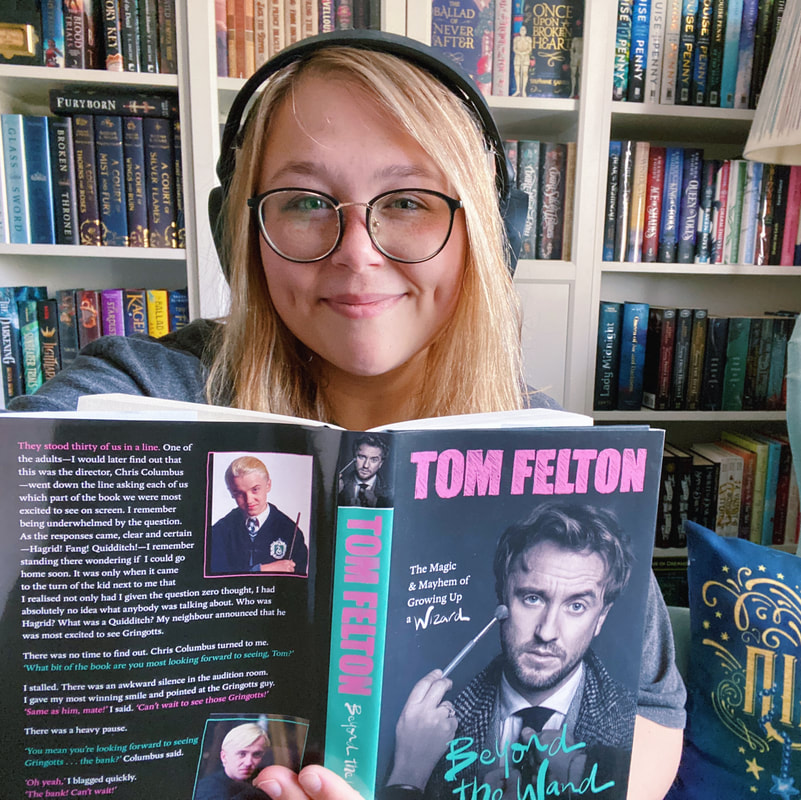
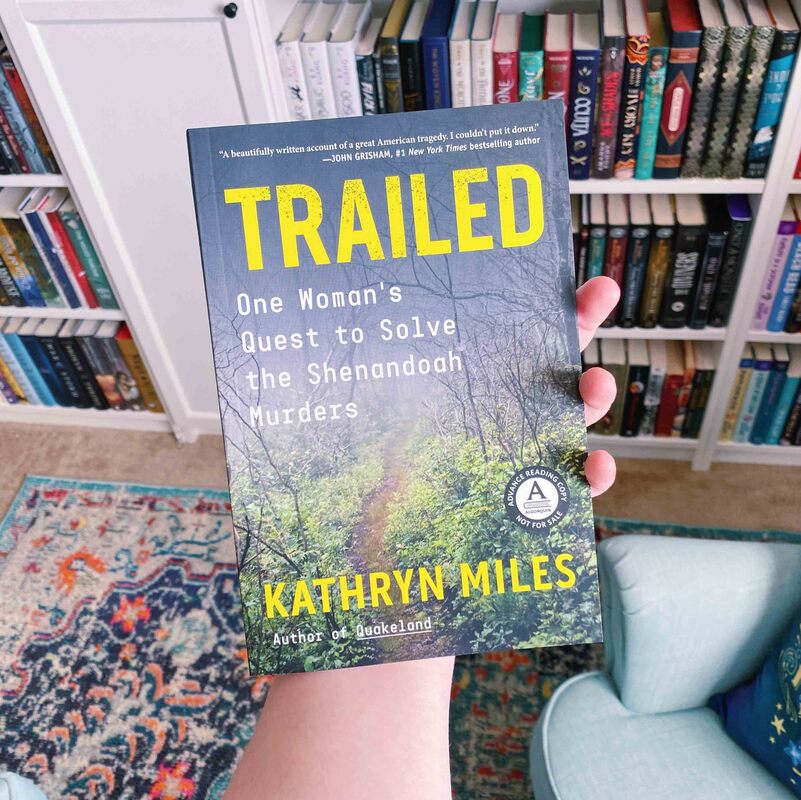
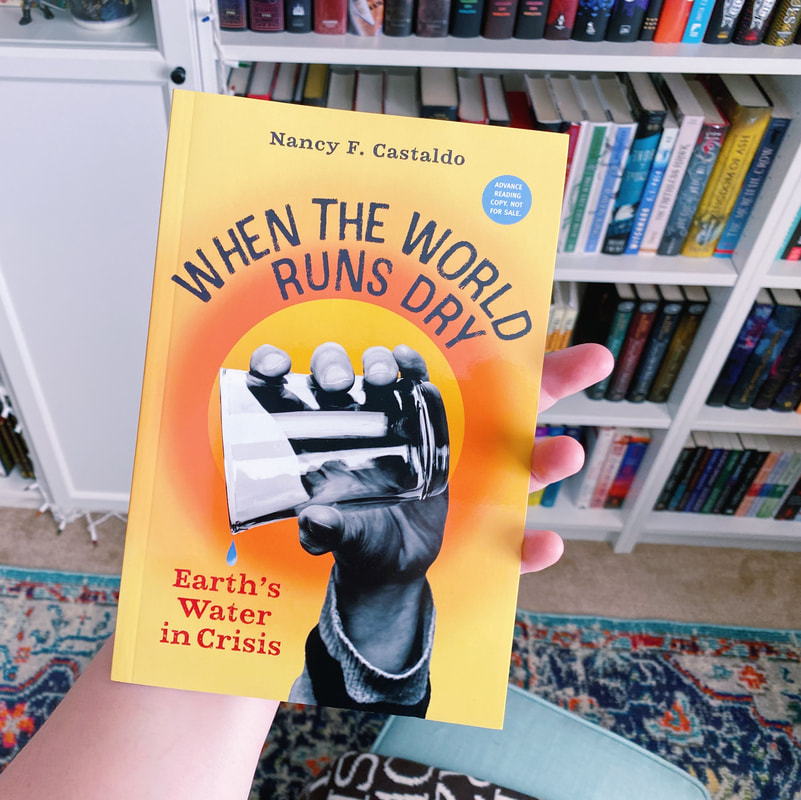
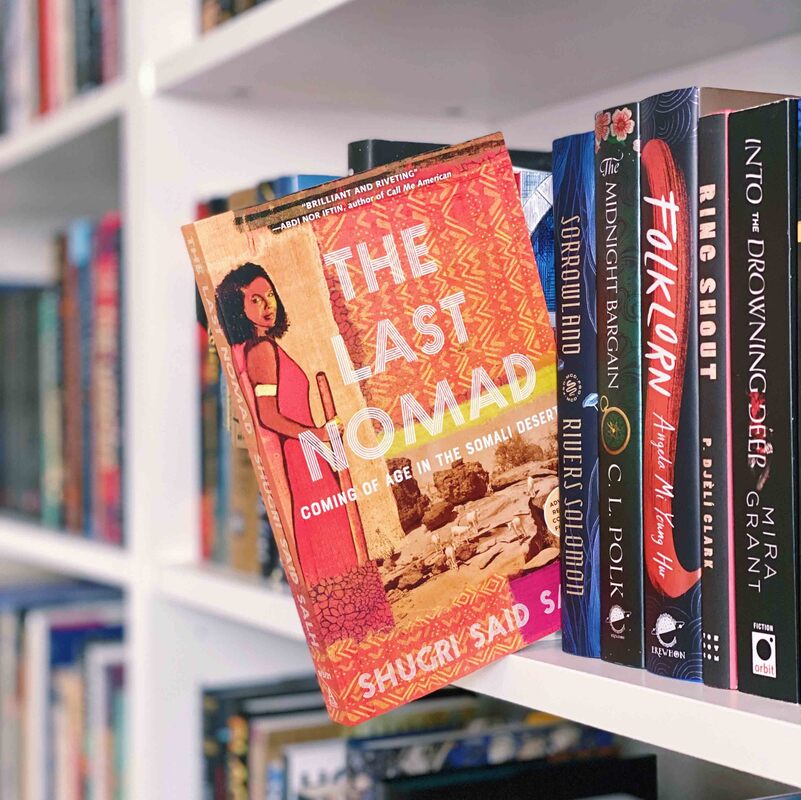
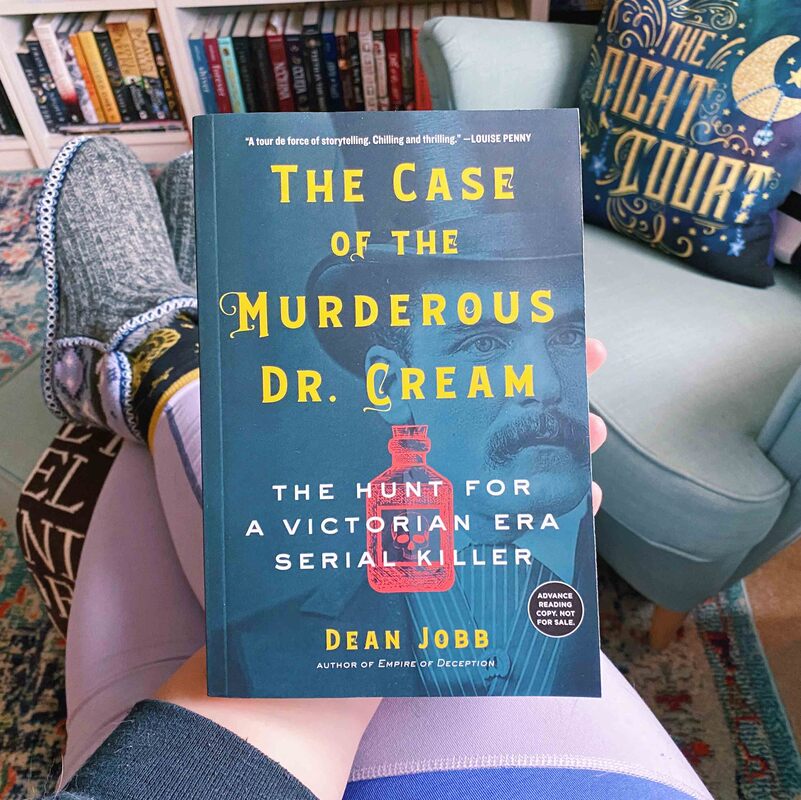
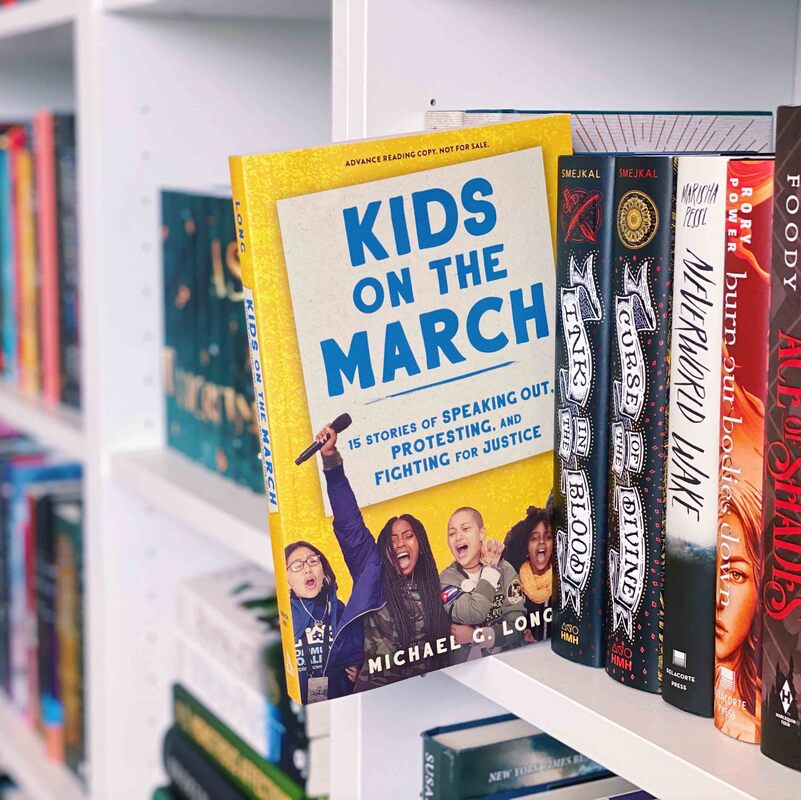

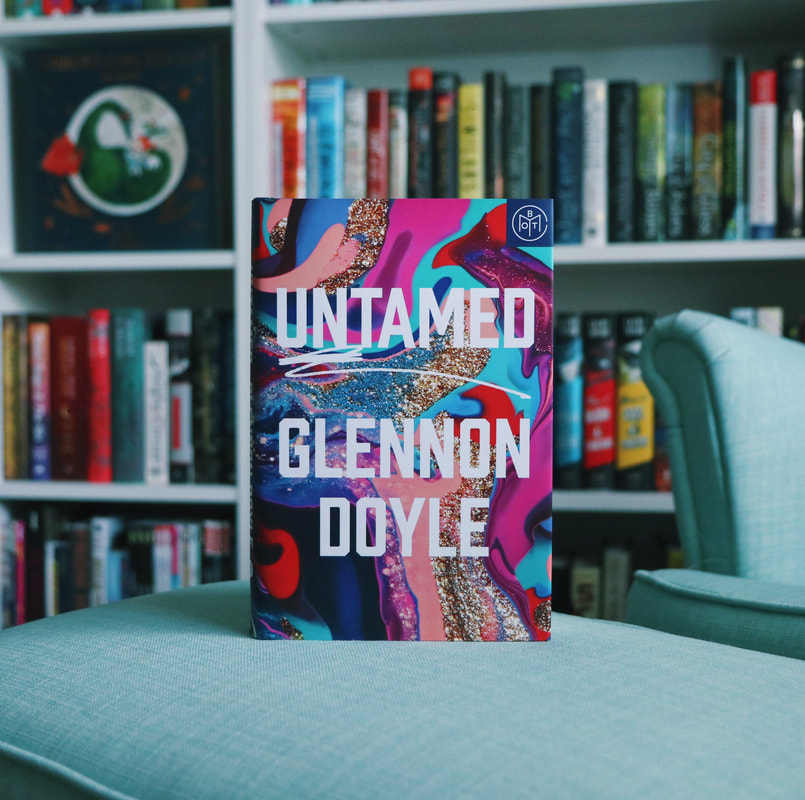

 RSS Feed
RSS Feed
